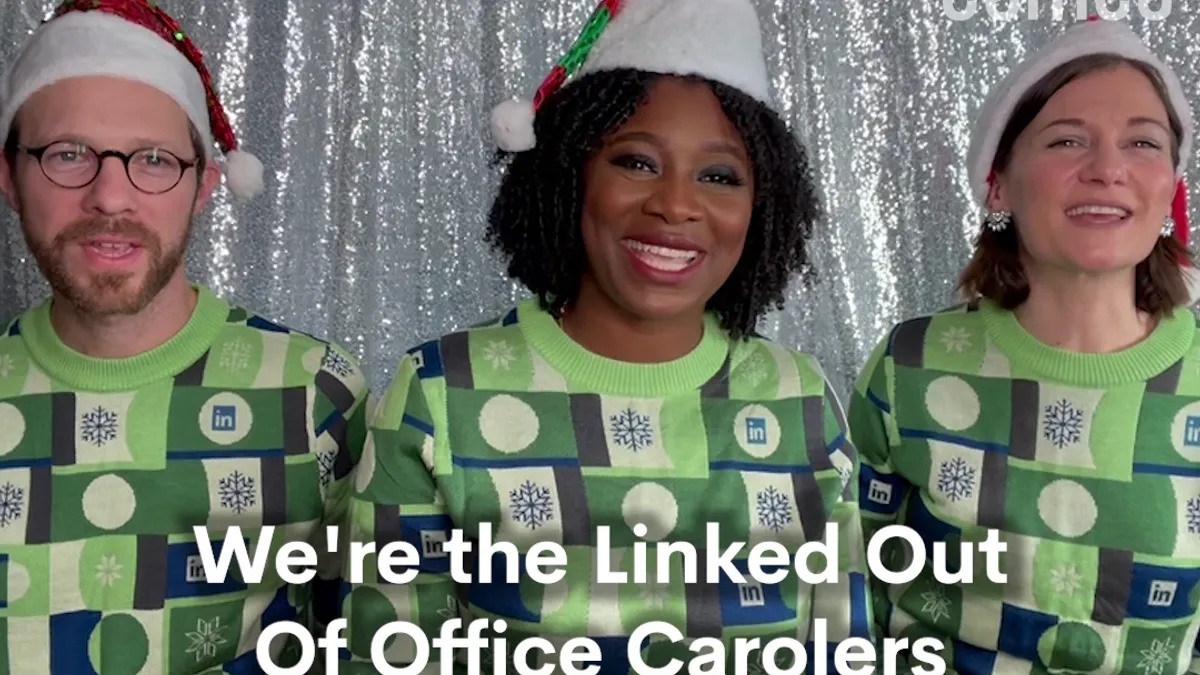Cameo is gaining momentum as more marketers develop campaigns with its platform, which is most notable for letting people buy personalized video recordings from celebrities. A recent expansion into services for businesses gives advertisers a way to grab consumer attention by pairing their brands with public personalities.
"We've seen some really good use cases of what Cameo is able to pull off," said Matt Maher, founder of technology-focused consulting firm M7 Innovations. "It's an attention economy — so you're trying to get people's attention, you're trying to be authentic and you want fans to engage with your brand."
Cameo this year is poised to have a growing role in the broader arena of social media while distinguishing itself from other platforms like TikTok, Snapchat, Twitter and Instagram, he added.
"TikTok has our attention, but a brand is going to compete with billions of videos," Maher said. "Snapchat definitely has authenticity with your close friends, but it's still kind of ephemeral. You can get engagement on Twitter or Instagram or anywhere else, but the question is: How good is the quality of that engagement?"
More marketers may ask themselves that question as they continue to pile into social media advertising. With an average yearly growth rate of 15% for the next few years, social media ad spending will expand faster than any other channel, Zenith predicted last month. That spending will reach $177 billion this year to overtake TV's $174 billion worldwide. By 2024, social media will make up 27% of the global advertising market, followed by paid search at 23% and TV at 21%, the agency estimates.
In this crowded social media environment, Maher sees an opportunity for marketers to stand out by building out campaigns on Cameo.
"If your brand lines up with a celebrity on Cameo, you have a completely captive audience that's interested," Maher said. "Cameo's real selling point is the value exchange for engagement."
Bud Light's Birthday Shout-Outs campaign in the U.K. exemplifies how a major brand used Cameo's platform to differentiate itself, he said. The beer brand asked people to enter for a chance to win a personalized birthday message for a friend from one of six celebrities. Cameo delivered hundreds of customized messages to U.K. residents and generated positive sentiment toward Bud Light that was rated two times better than its benchmark, per data compiled by Cameo. Engagement for the effort was seven times higher than campaign averages.
Mate’s 2020 Birthday coming up? They need all the help they can get. WIN them a celeb shoutout here. Go to https://t.co/2CVctpqgQW #BudLightBirthdays pic.twitter.com/D4ZnLFHFxw
— Bud Light UK (@BudLightUK) December 16, 2020
"That level of value exchange is unbelievable because even if you're sending videos to hundreds of people, it can spread like wildfire as people share those videos with the world," Maher said. "It's been a really interesting niche that Cameo has been able to carve out that continues to grow."
Personalized messaging
In the past year, a variety of other brands have created campaigns that bring together celebrities on Cameo with consumers. The platform gives advertisers an established way to recruit a mix of star athletes, actors and TV personalities in their marketing efforts.
Nissan's luxury auto brand Infiniti last summer gave prospective car buyers a chance to ask questions about the 2022 QX60 crossover SUV. Olympic gymnast Gabby Douglas and sportscaster Erin Andrews were among the handful of celebrities who recorded answers that were delivered through Cameo.
More recently, Coca-Cola launched a holiday-themed campaign that let consumers request a personalized video message from Santa Claus. The messages were shareable on social media and in chat apps, helping to broaden their visibility to consumers who may not be as familiar with Cameo.
That kind of organic growth creates a "halo effect" from content originating on Cameo, M7's Maher said. Aside from viral reach, brands can achieve greater scale by including the videos in other ad creative.
"Brands are taking those posts and then turning them into paid media content," Maher said. "There's also added value in the PR that comes from rewarding people with personalized videos."
"If your brand lines up with a celebrity on Cameo, you have a completely captive audience that's interested. Cameo's real selling point is the value exchange for engagement."

Matt Maher
Founder, M7 Innovations
Value of contextual advertising
The impending disappearance of tracking cookies in Google's popular Chrome browser and the loss of identifiers in Apple's devices have pushed more marketers to seek other kinds of consumer data signals that guard privacy. Cameo can be a place to engage audiences in a welcoming context, Maher said.
"When we look at platforms like Spotify that has this rich attitudinal mood-based data or The New York Times that has a rich first-party dataset and can serve contextual ads, I think Cameo is one of those engaging, captive-audience platforms," Maher said. "It's never going to have the instant reach of a Facebook, Google or Amazon, but it could mean a lot to a smaller audience."
He said he expects to see more brands dabble in Cameo campaigns this year, including clients looking for alternatives to the "triopoly" of Facebook, Google and Amazon.
"We look for engagement where people are actually paying attention, and Cameo is one place where that happens," Maher said.





















